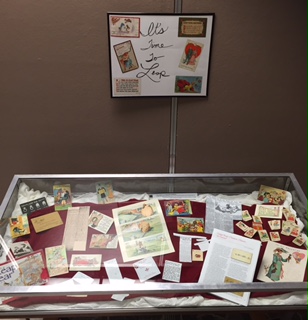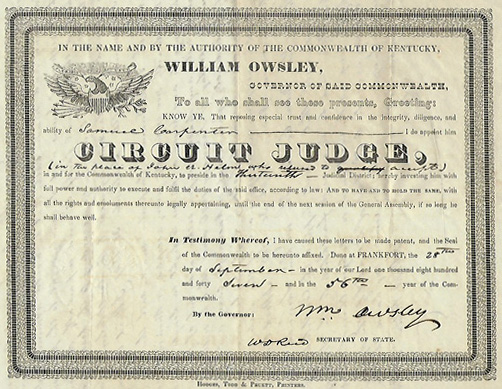WKU Library Special Collections often commemorates leap year with an exhibit. This year, our efforts to educate our viewers about the legend of the 5th century agreement between St. Brigid and St. Patrick that allowed women the right to propose for 366 days every four years and subsequent beliefs about laws, have broadened.
Sue Lynn McDaniel published an article “Leap Year: Chance, Chase or Curse?” in the January 2016 issue of The Ephemera Journal. See http://works.bepress.com/sue_lynn_mcdaniel/ Last week, she was the “Talk of the Town” in our local Bowling Green Daily News for her research on leap year and has curated an exhibit that closes March 31st in Library Special Collections entitled: “Time to Leap!” displays a portion of our collection.
But most exciting for us this year is our new opportunity to go beyond our doors by opening the Library Special Collections’ Worth A Thousand Words gallery “Leap Year Postcards and Ephemera.” This site functions as searchable permanent sources for users not necessarily OPAC friendly. Enjoying exhibit cases are limited by schedules and the viewers’ ability to travel to the destination. Nancy Richey will continue to add all our postcards to KenCat, while Sue Lynn McDaniel adds ephemera to this online catalog, but we anticipate wider usage and visibility of our primary sources through this TopScholar gateway. Please explore the Leap Year Postcards and Ephemera, via http://digitalcommons.wku.edu/ly_pe/ Once you have reviewed the materials, come hear Sue Lynn McDaniel’s presentation: “Time to Leap” on Leap Day, February 29, 2016 at 4 p.m. in the Western Room of the Kentucky Building. For students, this is a swipeable event.


